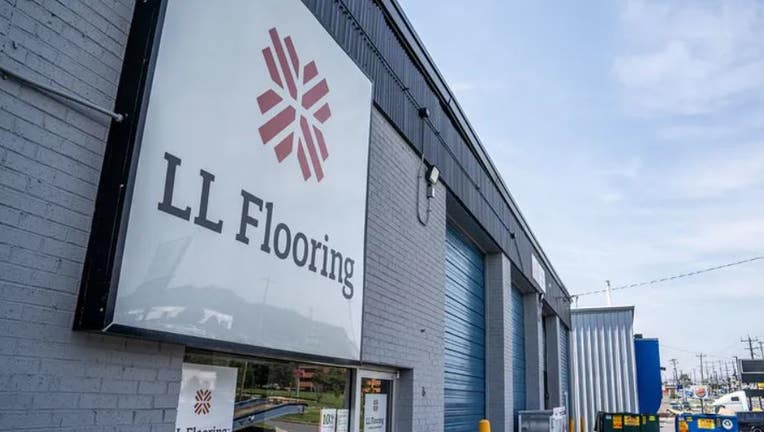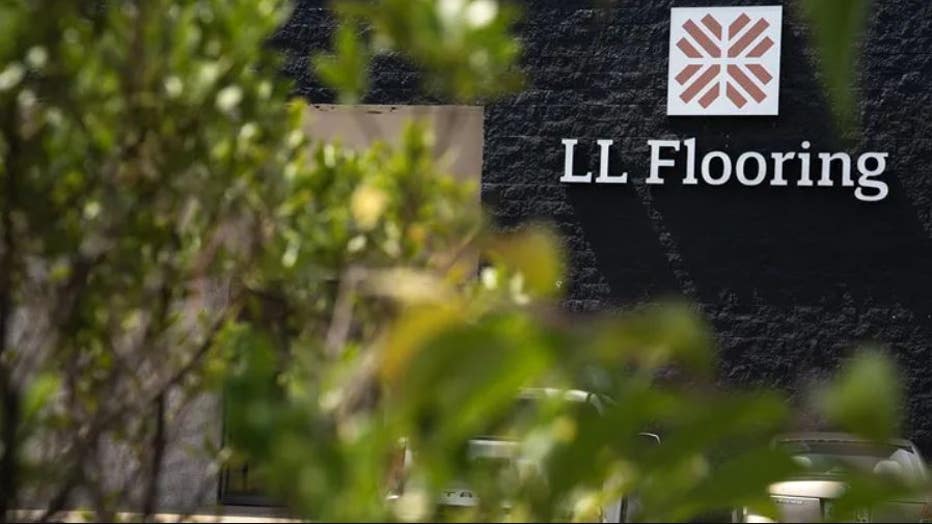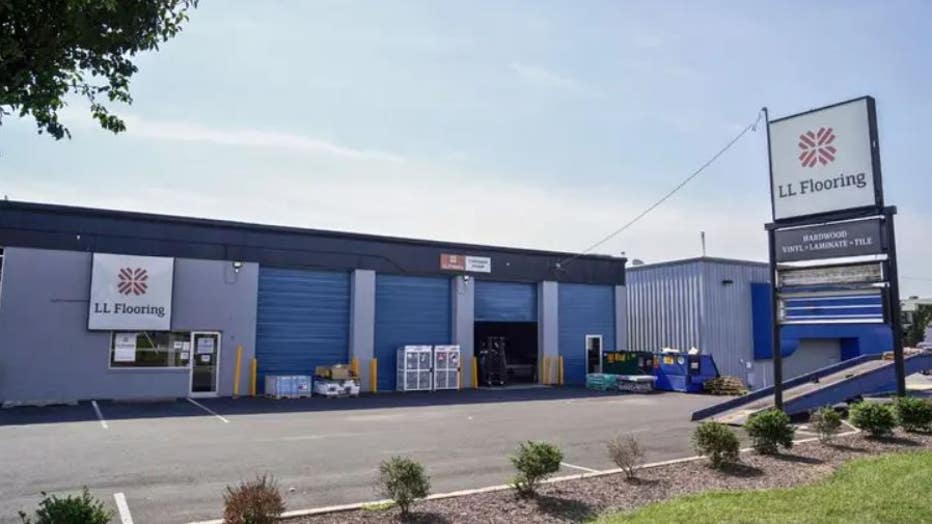LL Flooring, hardware store once known as Lumber Liquidators, to close all 400 stores in bankruptcy proceeding

Retailer LL Flooring, previously known as Lumber Liquidators, is set to close after 30 years in business following a failed effort to find a buyer just weeks after filing for bankruptcy. (Nathan Howard/Bloomberg via Getty Images / Getty Images)
National retailer LL Flooring, previously known as Lumber Liquidators, has announced it is getting out of business after 30 years following a failed effort to find a buyer just weeks after filing for bankruptcy.
The Richmond, Virginia-headquartered firm, which had 442 nationwide stores open until recently, says it will permanently shutter after negotiations with multiple bidders did not result in an offer, the company announced on its website. The company said last month it had already initiated closing down 94 stores.
Known for offering hard surface flooring products and being a formidable competitor to Home Depot, LL Flooring filed for relief under Chapter 11 in the U.S. Bankruptcy Court for the District of Delaware in early August, with the company saying it secured $130 million in debtor-in-possession financing from an existing bank group led by Bank of America.
LL FLOORING TO CLOSE 94 STORES AS IT FILES FOR BANKRUPTCY
However, under Chapter 11 rules, LL Flooring says it is required to achieve the highest or otherwise best offer for the company’s business or assets.
And, given the lack of a buyer, it determined that a sale of its individual assets, holding closing sales at stores and winding down the business would deliver the most value to creditors.
"As a result, it is with a heavy heart that we must let you know that we are going to begin the process of winding down LL Flooring’s business and closing all of our stores," CEO Charles Tyson wrote to customers.
"This is not the outcome that any of us had hoped for. Since 1993, LL Flooring has been at the forefront of crafting beautiful spaces, supporting customers every step of the way — from finding the right material to arranging safe, expert installation."

The Richmond, Virginia-headquartered firm was founded in 1993. (Nathan Howard/Bloomberg via Getty Images / Getty Images)
The closures will result in around 2,000 workers losing their jobs, according to CBS.
Tyson wrote that closing sales begin at all its remaining stores from Friday and will be held for the next 12 weeks with the timing of closures varying from store to store.
Orders currently in place for installations will be fulfilled within 30 days and orders for new installations have stopped, the company says.
ITALIAN RESTAURANT CHAIN FILES FOR CHAPTER 11 BANKRUPTCY
"We look forward to offering you great deals through the closing process," Tyson wrote.
"We have been proud to serve our customers over the years and thank you again for your business and turning to us for your flooring needs."
Lumber Liquidators Flooring was founded in 1994 by Tom Sullivan, a building contractor who began purchasing excess wood from other companies. The company quickly grew to be one of the largest retailers of hardwood flooring in the country and expanded into Canada in 2010.
The company has been navigating choppy waters since a 2015 "60 Minutes" report suggested the then Lumber Liquidators’ laminate flooring product had high levels of the cancer-causing toxin formaldehyde, having been imported from China. Formaldehyde is found in the glue that manufacturers use to produce composite wood products like fiberboard, which forms the base of laminate flooring.

An LL Flooring store in Beltsville, Maryland. (Nathan Howard/Bloomberg via Getty Images / Getty Images)
The retailer’s shares immediately dropped 23% to $39.73 following the report. Its stock has crashed from 84 cents to 2 cents since the Chapter 11 filing last month.
Later in 2015, Lumber Liquidators pleaded guilty in federal court to the illegal importation of hardwood flooring and was hit with $13.15 million in penalties the following year.
It rebranded itself in 2020, changing its name to LL Flooring.

